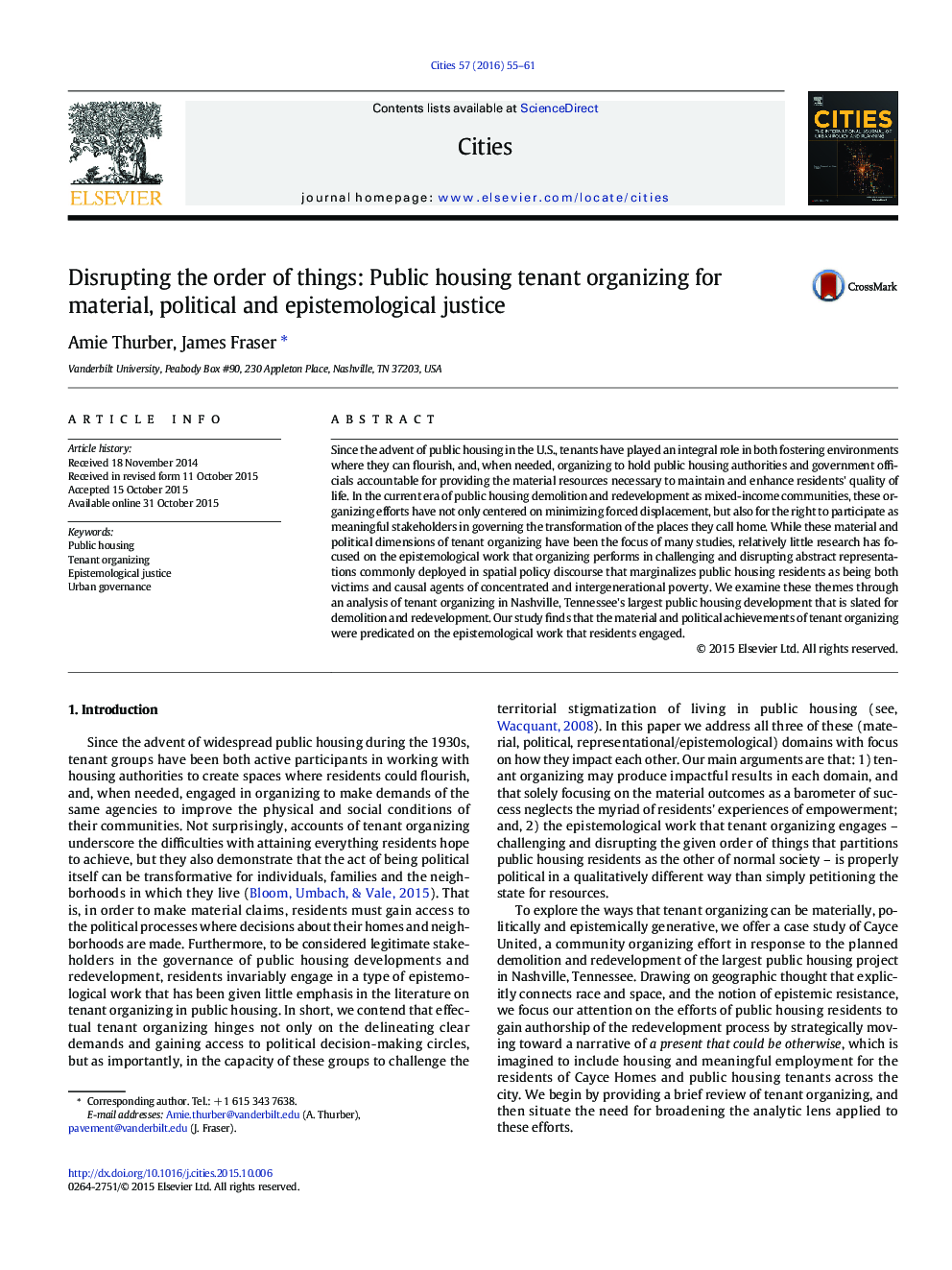| Article ID | Journal | Published Year | Pages | File Type |
|---|---|---|---|---|
| 1008172 | Cities | 2016 | 7 Pages |
•The material and political achievements of tenant organizing are often predicated on the epistemological work of residents.•Resident organizing disrupts damage-based representations used to marginalize residents from political participation.•Resident organizing legitimating residents’ knowledge and status as experts of their lived experience.•Tenant organizing puts forward ‘everyday utopian’ visions that seek to create a ‘present that could be otherwise.’
Since the advent of public housing in the U.S., tenants have played an integral role in both fostering environments where they can flourish, and, when needed, organizing to hold public housing authorities and government officials accountable for providing the material resources necessary to maintain and enhance residents' quality of life. In the current era of public housing demolition and redevelopment as mixed-income communities, these organizing efforts have not only centered on minimizing forced displacement, but also for the right to participate as meaningful stakeholders in governing the transformation of the places they call home. While these material and political dimensions of tenant organizing have been the focus of many studies, relatively little research has focused on the epistemological work that organizing performs in challenging and disrupting abstract representations commonly deployed in spatial policy discourse that marginalizes public housing residents as being both victims and causal agents of concentrated and intergenerational poverty. We examine these themes through an analysis of tenant organizing in Nashville, Tennessee's largest public housing development that is slated for demolition and redevelopment. Our study finds that the material and political achievements of tenant organizing were predicated on the epistemological work that residents engaged.
